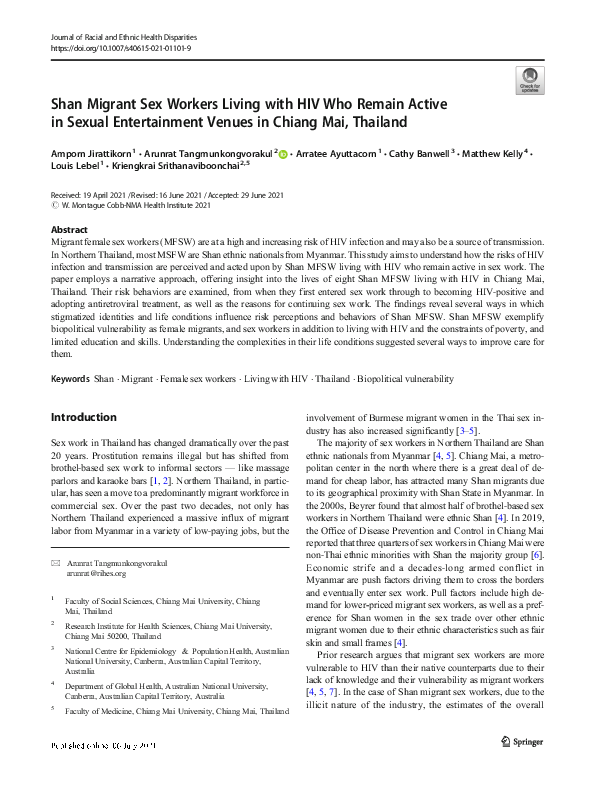Shan Migrant Sex Workers Living with HIV Who Remain Active in Sexual Entertainment Venues in Chiang Mai, Thailand
Publication Description
Jirattikorn, Amporn, Tangmunkongvorakul, Arunrat, Ayuttacorn Arratee, Banwell Cathy, and Kelly Matthew, Lebel Louis, Kriengkrai Srithanaviboonchai (2021), “Shan Migrant Sex Workers Living with HIV Who Remain Active in Sexual Entertainment Venues in Chiang Mai, Thailand”. Journal of Racial and Ethnic Health Disparities. Published online 6 July 2021. [Online]. Available from: https://pubmed.ncbi.nlm.nih.gov/34231161/ [accessed 9 August 2021].
Abstract
Migrant female sex workers (MFSW) are at a high and increasing risk of HIV infection and may also be a source of transmission. In Northern Thailand, most MSFW are Shan ethnic nationals from Myanmar. This study aims to understand how the risks of HIV infection and transmission are perceived and acted upon by Shan MFSW living with HIV who remain active in sex work. The paper employs a narrative approach, offering insight into the lives of eight Shan MFSW living with HIV in Chiang Mai, Thailand. Their risk behaviors are examined, from when they first entered sex work through to becoming HIV-positive and adopting antiretroviral treatment, as well as the reasons for continuing sex work. The findings reveal several ways in which stigmatized identities and life conditions influence risk perceptions and behaviors of Shan MFSW. Shan MFSW exemplify biopolitical vulnerability as female migrants, and sex workers in addition to living with HIV and the constraints of poverty, and limited education and skills. Understanding the complexities in their life conditions suggested several ways to improve care for them.

